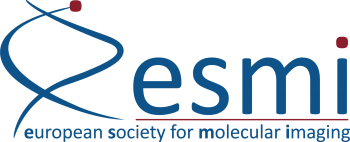View all recordings of former editions below  .
.
Seminar Concept
Each seminar covers two of the four areas.
- TECHNIQUE | introduce novel techniques and experimental concepts to combine nanomedicine and multiscale imaging for therapeutic and diagnostic approaches.
- CLINIC | update on clinical applications of IGDD and discussion on improving the transfer of preclinical results into the clinic.
- INDUSTRY | introduce products/solutions of small and large companies that support finding the right (imaging) solution. Moreover, many (inter)national grant opportunities demand for public-private partnerships: seminars shall provide you with further insights into industrial innovations/solutions and support interaction.
- HOT PAPER | discussion on recent publication in the IGDD field.
Recordings | Editions #1-6
Latest Edition
This edition covers INDUSTRY & CLINIC
Date: 16 October 2024
Speakers – Talks – Abstracts
Dominik Witzigmann, CEO @ NanoVation Therapeutics, Vancouver
Genetic medicines enabled by lipid nanoparticles – A breakthrough technology revolutionizing medicine
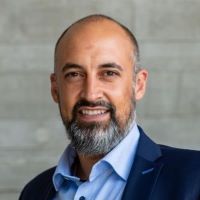
Dominik Witzigmann earned his Ph.D. in Pharmaceutical Technology from the University of Basel. His research focusses on on RNAi, cancer, nanomedicine, and mRNA-based genome editing. At the University of British Columbia, he worked with Prof. Pieter Cullis on RNA delivery using lipid nanoparticles (LNP).
As co-founder of NanoVation Therapeutics, Dominik is advancing LNP technologies for clinical use.
Renske Altena, Medical Oncologist @ Karoliska Institute, Stockholm
HER2-PET imaging beyond HER2-positive breast cancer
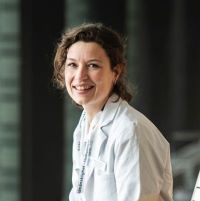
Renske Altena is a medical oncologist at Karolinska University hospital and associate professor of oncology at Karolinska Institutet. She is PI and deputy PI for several clinical imaging trials as well as a first in human trial with a new Lutetium-177 labeled antibody for patients with metastatic solid tumors.
In her talk she discusses results from completed and ongoing clinical trials with HER2-PET imaging in patients with HER2-low breast cancer and HER2-positive gastro-esofageal cancer.
Edition #6
This edition covers HOT PAPER & INDUSTRY
Date: 7 June 2024
Speakers – Talks
Rafael T. M. de Rosales @ KCL London, UK
Towards in vivo Positron Emission Particle Tracking (PEPT)
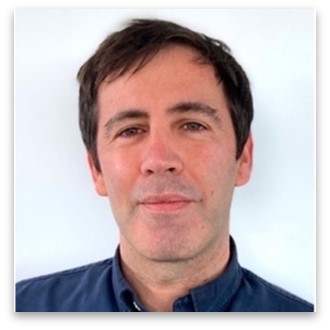
Rafael is a chemist specialised in medical imaging that aspires to make an impact in medicine using innovative chemistry and a multidisciplinary approach.
The overall research aim of his group is to design and develop novel and innovative imaging tools to allow medical researchers and clinicians to better understand, diagnose, and treat disease.
He is interested in exploiting the high sensitivity and whole-body quantitative imaging capabilities of PET, that allow us to better understand how advanced therapies such as those based on drug delivery systems and cell-based therapies behave inside the body.
Sara Sprinkhuizen @ Data Vision Lab, The Netherlands
Exploring versus Explaining – the different roles of data visualisation in academia
This presentation was not recorded!
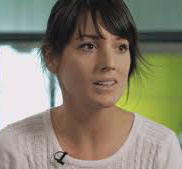
Sara Sprinkhuizen studied physics and did her PhD research at the Image Sciences Institute @ UMC Utrecht, specialising in MRI thermometry. She then moved to Boston for a post-doc in MRI scanner physics.
After her post-doc she decided to focus on data visualisation, which led to collaborations with De Correspondent and MIT Media Lab and to having her first interactive data visualisation ‘Biota Beats’ presented in the Stedelijk Museum Breda for their ‘True Beauty’ exhibition.
She now works on a freelance basis data analysis and visualisation projects for hospitals and medical journals and teaches data visualisation workshops to scientists.
Edition #5
This edition covers TECHNIQUE & CLINIC
Date: 22 September 2023
Speakers, Talks, Abstracts
Ali Erturk @ LMU Munich, Germany
AI-based imaging methods for the next-generation biomedical solutions
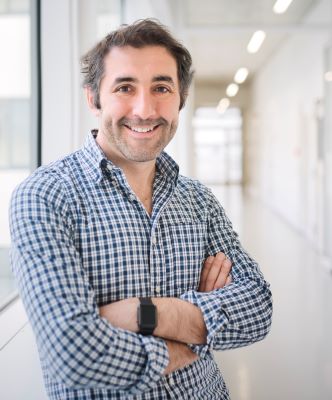
Dr Ertürk is a distinguished scientist and entrepreneur who is currently CEO and founder of Deep Piction. He is also a full professor at LMU Munich and additionally Director of the Institute for Tissue Engineering and Regenerative Medicine at Helmholtz Munich. Dr Ertürk holds a Bachelor’s degree in Molecular Biology and Genetics from Bilkent University and completed his PhD at the Max Planck Institute of Neurobiology. His research focuses on the development of AI-based technologies to improve diagnostics and therapeutics, with special interests in AI, tissue clearing, imaging, spatial-omics, organoids, neurodegeneration, cancer and metabolism.
Arthur Braat @ UMC Utrecht, The Netherlands
Holmium-166 microspheres for image-guided radioembolization
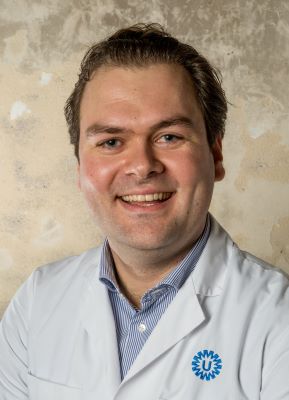
Directly after finishing his residency, he became Nuclear Medicine Physician at the University Medical Center since 2017, specialized in radionuclide treatments in general. Finished his PhD-thesis on selective internal radiation therapy (SIRT) in neuroendocrine neoplasms (NEN) in 2019. Special interest in optimization of SIRT and systemic radionuclide treatments, looking at patient individualized treatments. In particular, he has an interest in pre-treatment evaluation based on dosimetry and pre-treatment imaging prediction.
Clinical experience includes >300 SIRT treatments in various tumor types with different medical devices and he has worked with different software packages for dosimetric assessment. For systemic treatments, he has a vast amount of experience with somatostatin receptor targeted compounds and PSMA compounds. He and his colleagues facilitate and participate in several phase 1, 2 and 3 trails on radionuclide treatments for new treatments, new indications or new administration methods.
Edition #4
This edition covered TECHNIQUE & INDUSTRY
Date: 26 May 2023
Please note: due to privacy protection, the “industry” talk by Cristianne was not recorded.
Speakers, Talks, Abstracts
Kristian Pietras @ Lund University, Sweden
Exploring the organizational principles of the tumor microenvironment to reveal functional heterogeneity
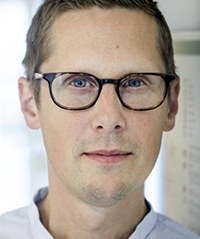
Kristian Pietras received his PhD in 2002 at the Ludwig Institute for Cancer Research, Uppsala University, Sweden. He then performed postdoctoral work at the University of California in the laboratory of Douglas Hanahan. Kristian returned to Sweden and in 2012, he was recruited to Lund University, where he became the founding Director of the Lund University Cancer Centre. As a well-positioned link between basic science, oncology and pharmaceutical industry, Kristian has made important contributions in defining tumours as communicating organs comprising multiple cell types that collectively sustain cancer progression. He has received numerous awards for his research.
Cristianne Rijcken @ Cristal Therapeutics
The biotech rollercoaster ride to success: what are the essential elements to keep you flying high?
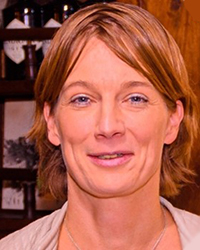
Cristianne Rijcken is the founder of Cristal Therapeutics, and serves as Chief Scientific Officer of the company and serves as independent consultant to early-stage life science startups.
She is pharmacist by training and holds a PhD degree from Utrecht University. She is (co-) author of ~50 scientific publications.
Cristal Therapeutics is a clinical stage pharmaceutical company developing the next generation nanomedicines based on its proprietary CriPec® platform to treat various diseases, including cancer. CriPec® is suited for the development of customizable (targeted) nanomedicines with superior efficacy and safety profiles. The most advanced product in development has been CriPec® docetaxel for the treatment of solid tumours. Currently, the main focus is to commercially exploit CliCr® as a next generation class of metal-free click reagents.
Edition #3
This edition covered the areas CLINIC & HOT PAPER.
Date: 2 Dec. 2022
Speakers & Talks | edition #3
Willemien Menke-van der Houven van Oordt @UMC Amsterdam
PET in the clinic. What can we learn about drug delivery in the patient?

Willemien Menke-van der Houven van Oordt is a medical oncologist at Amsterdam University Medical Center. Her ultimate goal as an oncologist is to have effective cancer treatment for every individual patient. Her research efforts concentrate on PET imaging as part of early drug development and for patient selection as well as treatment evaluation. In the clinic she treats patients with breast cancer, endocrine tumors and patients who want to participate in phase I trials.
Alexandre Detappe @Strasbourg Cancer Institute (ICANS)
Molecular Bottlebrush Prodrugs as Next-Generation Mono and Triplex Combination Therapies for Multiple Myeloma
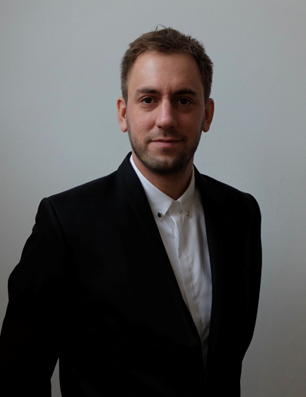
After a PhD in nanoscience at the University of Lyon and a postdoctoral fellowship at the Dana-Farber Cancer Institute/Harvard Medical School and at the Massachusetts Institute of Technology where Alexandre developed a pipeline of novel nanomaterials applied to Multiple Myeloma, he joined the Strasbourg Cancer Institute in 2019 as Professor in Medicine and group leader of the Nanotranslational laboratory. Alexandre’s laboratory is currently working on the development of novel nano-immunotherapeutic approaches in Multiple Myeloma.
Edition #2
- This seminar covered the areas CLINIC & HOT PAPER.
- Date: 24 June 2022
Speakers & Talks | edition #2
Eugene Koay @ MD Anderson Cancer Center
Combining quantitative imaging and mechanistic mathematical models to predict outcomes to cytotoxic and immune-oncology therapies
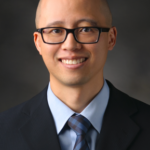
Eugene Koay is a physician scientist at The University of Texas MD Anderson Cancer Center, who specializes in radiation therapy for patients with hepatobiliary and pancreatic cancers, and develops applications of the physical sciences to cancer for the purposes of early detection, biomarker development, and therapeutic management.
Francis Combes @ SINTEF (one of Europe’s largest independent research organisations)
Regulatory guidelines and imaging of RNA therapeutics for preclinical biodistribution
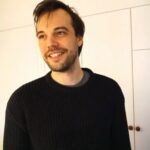
Francis Combes obtained a master’s degree in Veterinary Medicine at the University of Ghent and received a PhD from the lab of Gene Therapy at the same university. After 2 years of postdoctoral research, he is now a research scientist at SINTEF in Norway). His work focuses on finding novel means of achieving cell-selective delivery and activation of mRNA therapeutics.
Edition #1
- This seminar covered the areas TECHNIQUE & INDUSTRY.
- Date: 24 Jan. 2022
Speakers & Talks | edition #1
Jonathan T.C. Liu @ University of Washington, Seattle
Non-destructive 3D Pathology with open-top Light-Sheet Microscopy

Jonathan T.C. Liu is a professor of mechanical engineering, bioengineering, and laboratory medicine & pathology at the University of Washington, where his molecular biophotonics laboratory develops high-resolution optical imaging and computational analysis strategies primarily for surgical guidance and clinical decision support.
Gregory Hamm @ Cambridge/AstraZeneca
What Imaging can do: How Mass Spec Imaging is Putting Molecular Data into Tissue Context for Quicker, Better and more Reliable Pharmaceutical Research & Development
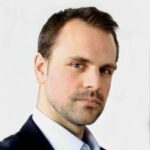
Gregory Hamm is a Director at AstraZeneca from the Imaging & Data Analytics team in Clinical & Pharmaceutical Safety Sciences. he’s supporting AstraZeneca portfolio using a range of advanced imaging technology including MSI, Imaging Mass Cytometry (IMC) and digital pathology.
Study Group Chairs
- Alexandros M. Sofias, Aachen
- Willemien Menke-van der Houven van Oordt, Amsterdam
Interested in joining a Study Group?
You are an ESMI member already? Just log-in to your ESMI member portal, proceed to tab”edit your membership details” and sign-in to any set of Study Group you are interested in.
Not a member yet?
Proceed to the Member Portal and register – it is just 85€/year, 20€/year for PhD students.
